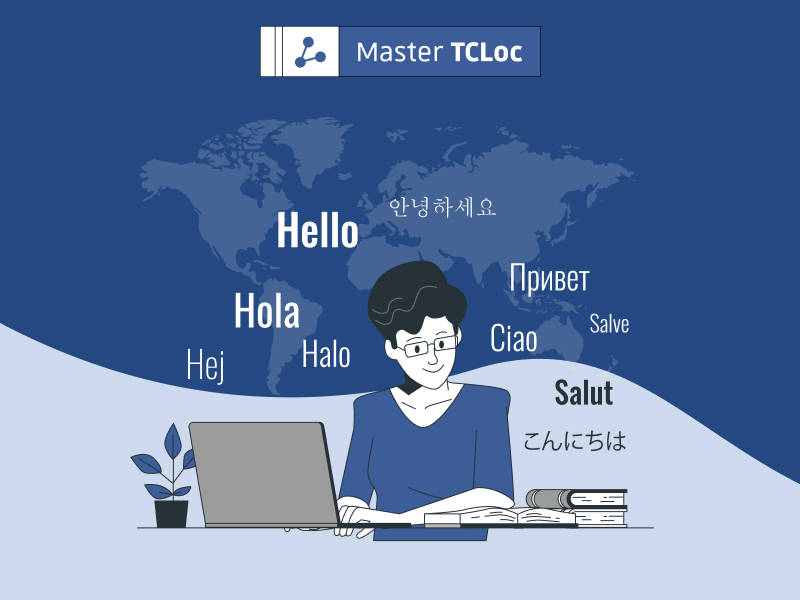Understanding the importance of technical concepts and forms of communication in different environments thanks to technical communication classes at the university is crucial to help the student become a technical communicator. Learn here why teaching technical communication at the university can greatly help you in your future life!
The Nuts and Bolts of Technical Communication
Technical communication is interwoven into our everyday lives; it pertains to each and every one of us in a highly impactful way. The words found in technical documentation can bring us joy (think new gadget), spare us pain (think well-written safety instructions), save a life (think machinery operators), or they can help us in a basic and uneventful sort of way (as in, switching on your morning coffee). Whether we read the instructions, quickly scroll through them, or toss them into the recycling, knowing what goes into this process of documentation is critical. This process is composed of so much more than just “instructions” and its specificities and intricacies dive into skills, ideas, and content matter that make it a suitable and necessary course of study for not only those who are more linguistically inclined, but also future engineers. Technical communication bridges the gap between science and language, resulting in an interdisciplinary subject that should find its way into higher-level institution curriculums the world over.
Why Teach Technical Communication (TC) in Higher Education?
For the Language Lovers
Although not commonly thought of as scholarly or traditional literature, technical documentation is an art in its own right, and mandates the highest level of both communicatory and grammatical skill. For language majors, this different type of writing also helps them dissect the language from a diverse mindset, and expands upon their skills (and therefore opportunities). Additionally, technical documentation now includes new ways to look at and use language, such as Simplified Technical English (STE) or Controlled Natural Language (CNL). This not only aids in learning grammar and orthography, but also helps to incorporate a more interdisciplinary look at language thanks to the connection to science. Furthermore, it adds the element of determining and writing for a specific target audience, which also integrates the components of empathy and technical knowledge.
For the Science Lovers
For engineers, the link between the criticality of teaching the art of technical documentation and their future as engineers, may not be quite as obvious. But yet, it is just as present and important. Engineers should know how their product will be documented, and should be part of the process (risk analysis, failure to warn, software documentation, etc.). This should be part of who they are in the workforce, instead of operating on a more stand-alone and specific basis. Technical Writing, a Guide for Effective Communication, written by professors at the Polytechnical Institute of Catalonia, Barcelona, sums up this connection best with its following points:
“Engineers and scientists’ writing skills must be of a high standard in order to effectively communicate with the people with whom they work. It is not enough for them to be technically good; they must be skillful in communicating what they are doing and why it is important. As a last resort, their technical and professional value will very much depend on their capacity to convince others of the importance of their work… engineers who can communicate their thoughts clearly and efficiently are bound to be promoted to more challenging positions.”
Furthermore, they explained that being skilled at written communication (regardless of language) has chances to add value that improves your resume but also helps you to stand out from other candidates in a job selection process.
Empathy and Technical Communication
Why does it seem that the sappy stuff never finds its way into academia? Teaching technical communication allows you to bring the emotion and empathy back into the classroom in a way that benefits both the students and, frankly, the future. In order to be an effective technical communicator, it is critical that you “know your audience” in order to properly and successfully write your material. Therefore, the students must be schooled not only in the academic skills, but in the emotional skills as well. And, this will propel your students forward in a way that others will lag behind. Why? According to the OECD (Organization for Economic Co-operation and Development), “Social and emotional skills, such as empathy and respect for others, are becoming essential as classrooms and workplaces become more diverse.” So much so, that the OECD has established these as necessary skills for the future, and ones that MUST be taught. Bulls-eye! You are helping the linguists, the engineers, and every student in between to be successful both in their future careers and in life.
Ready, set, go!
Now that it is quite clear that your university would benefit immensely from teaching technical communication, how should you go about adding this class to your curriculum? Luckily, the wheels are already in motion for you, as there is a group of dedicated professors already assembled to discuss, improve and implement new TC pedagogy in higher education.
And for the students, let the well-written, well-researched, well-paid (in the future), empathetic excitement commence! If you are interested in technical communication, don’t hesitate to check the TCLoc Master’s curriculum!
Meet Ashley Miller!
Ashley Miller is a TCLoc Master’s student with a background in educational instruction and pedagogy. After working as a professor in the French higher-education system (as well as a secondary English teacher in the United States of America), she has carved out her mission to help French university students gain from and profit from a holistic approach to learning. Technical Communication is an excellent interdisciplinary domain to do just that!



